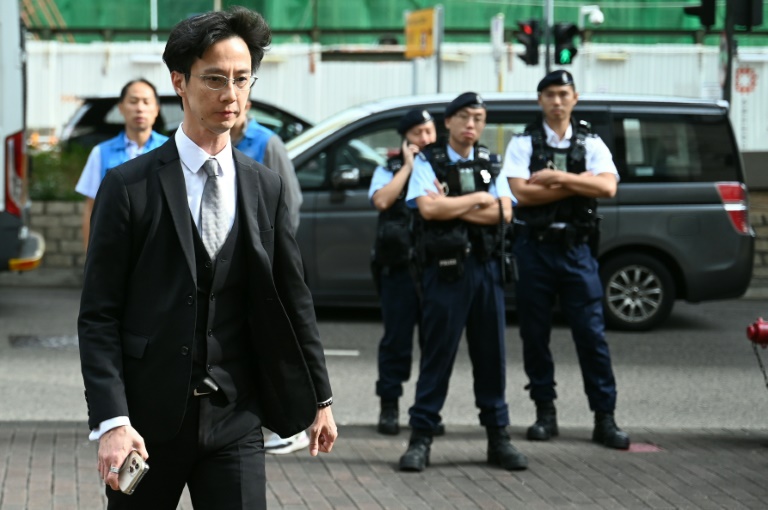Hong Kong’s largest security trial closes, activists await subversion verdict

The defendants of Hong Kong’s largest national security case represent a cross-section of the city’s opposition, from elected lawmakers to academics
Hong Kong – Hong Kong’s largest national security case, in which 47 pro-democracy activists are accused of subversion, closed on Monday with a verdict expected in three or four months.
The defendants represent a cross-section of Hong Kong’s opposition — from democratically elected lawmakers to academics — which has been effectively squashed after China imposed the sweeping national security law in 2020 to quell dissent.
Enacted after the city saw massive, and at times violent, pro-democracy protests, the law is regarded by critics as a clampdown on liberties that Hong Kong has enjoyed under an agreement Britain reached with China before handing the city over in 1997.
The case has dragged on for more than 1,000 days since authorities first filed charges and is being closely observed as a bellwether for Hong Kong’s political environment.
The group of 47 were jointly charged with “conspiracy to subvert state power” for organising, joining and supporting an unofficial primary election in July 2020 to shortlist pro-democracy candidates for the legislature election.
The prosecution alleged the group intended to obtain the legislature majority with the primary winners, then to compel the government to meet demands raised by protesters by threatening to indiscriminately veto the annual budget.
The final debates included a focus on whether vetoing the budget was a constitutional power provided by the Basic Law — Hong Kong’s mini-constitution — or an “unlawful means” to the alleged subversive plot.
“We are talking about somebody doing something in breach of the central principles” of the Basic Law, leading prosecutor Jonathan Man told the court.
While the prosecution argued that “unlawful means” does not need to be violent, defence lawyers said it must involve “physical coercion” or “criminal acts”.
Defence lawyer Kevin Chan said the prosecution did not have any case or statute to back its definition of “unlawful”.
“What the prosecution has alleged would not amount to subversion in any other common law jurisdiction — it would be considered normal politics,” said defence lawyer Trevor Beel.
Most of the group have been jailed for nearly three years since being charged in early 2021, with 31 pleading guilty and 16 standing trial since February.
The 118-day trial has been conducted without a jury — a major departure from Hong Kong’s 178-year-old common law tradition — as ordered by the secretary for justice to prevent the “involvement of foreign elements”.
Presided over by three government-picked senior judges, the court will deliver a verdict in “tentatively three to four months”.
